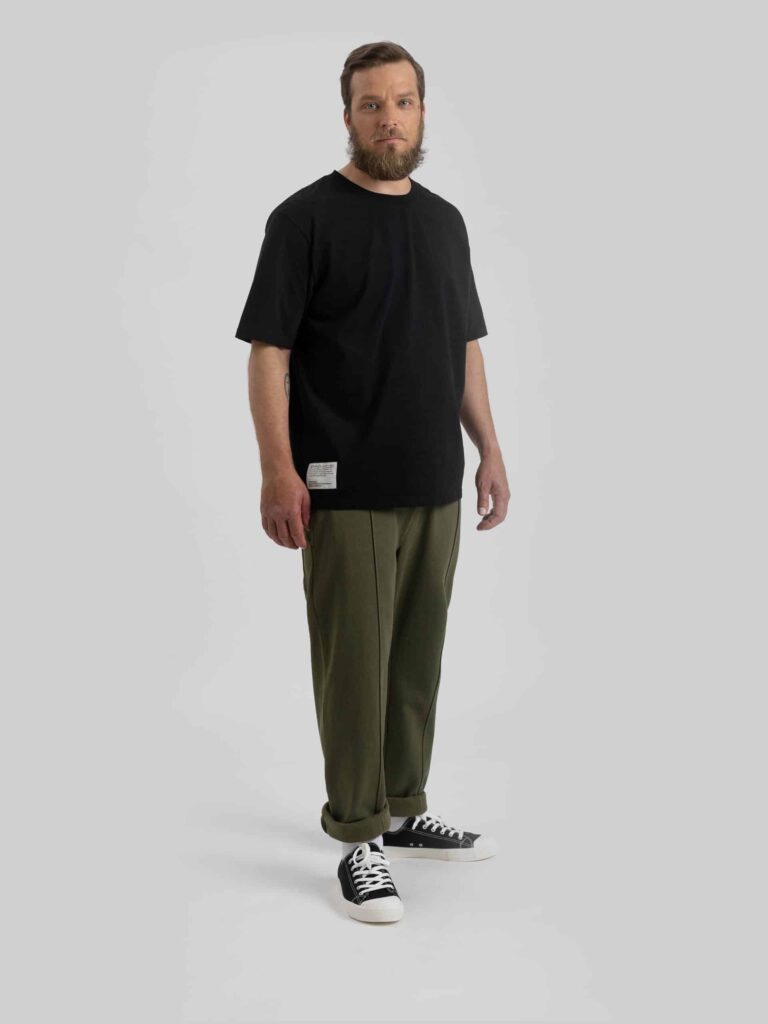clothing // all
Pure Waste




Classic basics through 100% recycled fibers
Pure Waste innovatively tackles the global challenge of textile waste by using only the waste. By transforming unused cotton cuttings into high-quality products, they are leading the way in sustainable fashion while using ethical supply chain practices. With Pure Waste, you can find your new favorite sustainable basics without worrying about CO2 and water emissions.
PRODUCTS: basics, men’s clothing, women’s clothing, kids’ clothing, trousers, sweaters, tops, fabrics
SUSTAINABLE AWARD WINNER
Pure Waste is the Green Product Award Winner in Fashion 2024 and holds The Most Responsible Shirt-award in Finland.
100% RECYCLED MATERIALS
This brand upcycles excess cotton cuttings into premium products while utilizing recycled cardboard in labels and packaging to promote sustainability.
SAVING WATER
Their methods save 11,000 liters of water per kilogram and contribute to water conservation efforts.
COMMITTED TO TRANSPARENCY
Every item in the webshop is marked with H2O and CO2e emissions for transparency. Information is easily found and the brand commits to publishing sustainability progress reports.
DIVE DEEPER
- 100% recycled: Materials used are recycled cotton from cutting waste (therefore the name Pure Waste) mixed with recycled polyester.
- Recycling cotton rather than growing new results in 99% less water and 50 % fewer carbon emissions compared to products made from virgin materials.
- Material is excess from local factory textile and garment industries without separation of organic and conventional cotton waste – cutting waste is 100% cotton, but not necessarily 100% organic.
- The raw material is sourced from contract factories that strictly adhere to REACH regulations.
Labels & Tags:
- Free from safety pins used in hang tags.
- Hang tags from recycled cardboard, product labels and size tags from recycled polyester.
Use of Recycled Polyester:
- Recycled polyester is added to strengthen yarn for higher quality.
- Aim to reduce the use of plastic-containing fibers in the future.
Chemical-Free Product Assurance:
- No dye or chemicals are added to the products.
- The fabric undergoes constant testing, and spot checks are continuously performed.
- Recycle clothes returned by customers.
Produced in India:
- Cutting waste is sourced from Indian factories, operating at the source of the waste.
- Factories producing clothing for Western markets & strictly adhering to REACH regulations.
- India possesses necessary machinery, infrastructure, and expertise in producing mechanically recycled textiles.
- Possession of SEDEX and BSCI certificates, surpassing minimum requirements.
- Appoximately half of the materials are shipped by sea from India in efforts to reduce carbon footprint.
Subcontractors:
- Vardhan Industries in Tamil Nadu: A-grade BSCI-audited
- Usha Yarns
- Sustainable Packaging: Cardboard boxes, paper bags, mailing bags, and plastic bags made of recycled materials.
- Products are not packed in individual plastic bags.
- Products are packed in larger bags, fitting 10 or 15 items, reducing plastic usage by 75% on average.
- Reuse the recycled cardboard boxes arriving from the factory in India, resulting in a 90% reduction in the annual purchase of new cardboard.
- Boxes hold ISO 14001 certification.
- Regular visits to the factory are conducted.
- Adherence to local laws and international regulations, including the UN Declaration on Human Rights.
- Sign a Code of Conduct with all subcontractors which gets renewed annually.
- Participate in and support the Corporate Social Responsibility Directive.
Employee Fair Wages and Safety:
- Payment of reasonable living salaries that exceed minimum wage.
- Proper employment contracts and inclusion in the payroll system.
- Monthly salary payments and coverage of employees' social contributions.
- On-site amenities include food services, transportation, accommodation as needed, and healthcare collaboration with a local private hospital.
- Open communication channels, with a suggestion box for employee feedback on the factory premises.
- Review process involving the factory manager and relevant stakeholders in India and Finland.
- Voluntary overtime compensation, complying with statutory regulations.
- Safe working environment ensured by factory buildings designed for industrial use in 2015 and 2020.
- Adequate ventilation and insulation for temperature regulation, especially during high-temperature periods.

